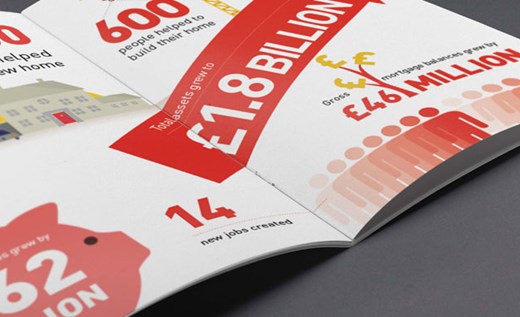Latest Ulster University research shows no change in NI house prices despite slowing market activity
Increasing interest rates coupled with the continued escalation in living costs have had a detrimental impact both on transaction levels and market sentiment in the housing market but there’s been no change to house prices, according to Ulster University’s latest research.
Increasing interest rates coupled with the continued escalation in living costs have had a detrimental impact both on transaction levels and market sentiment in the housing market but there’s been no change to house prices, according to Ulster University’s latest research.
Findings from the latest Northern Ireland Quarterly House Price Index show that despite attempts by the Bank of England to get a handle on inflation by increasing mortgage interest rates, the heightened affordability pressures for potential buyers has reduced market activity yet there has been no decline in overall house prices.
There is, however, evidence that the slowdown of price growth and price change variation will continue within some segments of the market which will invariably, albeit gradually, see the market prices start to realign over the first half of 2023.
The Quarterly House Price Index, produced by Ulster University in partnership with the Northern Ireland Housing Executive and Progressive Building Society, analyses the performance of the Northern Ireland housing market during the fourth quarter of 2022 (October - December).
Other key report findings for Q4 2022 include:
- The index displays a nominal quarterly house price growth of 1.3% relative to Q3 2022, with the average house price of residential property in Northern Ireland now standing at £207,327;
- The apartment sector exhibited the highest quarterly price change with an increase of 5.6% compared to Q3 2022, the average price of an apartment is now £158,300
- The terrace / townhouse sector has seen a decrease of -4.1% relative to Q3 2022, with the average price standing at £134,440;
- The semi-detached sector shows a quarterly price increase of 1.7%, with an average price of £190,822;
- The detached sector displayed a marginal decrease of -0.2% but remains on par with Q3 2022, and the average price stands at £292,773.
Introducing the findings, lead researcher Dr Michael McCord, Reader in real estate valuation at Ulster University, said:
“The housing market, while showing a softening in price growth over the course of 2022, continues to show resilience with no price correction evident despite the rather turbid economic setting, the continued cost of living crisis and Bank of England base rate increases. There are signs of purchaser demand and sentiment weakening invariably due to consumers adopting a ‘holding position’ to see whether interest rate increases have peaked and what appears to be the beginning of an easing inflationary environment.
“The housing market, to a certain extent, continues to be protected from any severe price correction due to the ongoing imbalance between demand and supply and the chronic lack and quality of private rental stock.”
Ursula McAnulty, Head of Research at NI Housing Executive, which commissions the research, said:
“Looking back over 2022, in what proved to be a tumultuous year on many fronts, pricing levels overall have shown remarkable resilience, particularly in the context of high inflation and rising interest rates. This resilience is, partially at least, the result of supply side issues within the housing market, although the sub-regional variation in house price growth, and the continued slowdown in buyer enquiries and activity, somewhat dampen this view.
“Looking towards 2023, generally confidence is strong amongst estate agents in the pricing structure, for the first quarter of 2023 at least. The impact of any increase in interest rates will undoubtedly play a significant factor, particularly for those potential first time buyers who are already facing affordability issues in gaining access to the owner-occupied sector.”
Michael Boyd, Deputy Chief Executive and Finance Director at Progressive, said:
“Northern Ireland’s housing market showed resilience in the last quarter of 2022, shrugging off pressures from rising interest rates, inflationary pressures and an uncertain economic outlook. A continued lack of supply continues to underpin prices and helped average prices to push higher but activity, unsurprisingly, has waned and the overriding pressures has pared the rate of growth.
“That trend looks likely to continue in 2023, although a more settled interest rate environment and signs of an easing in inflation may help boost sentiment. While the supply tightness in the Northern Ireland market shows no sign of easing, the market’s future direction will continue to be tied to wider macro-economic considerations.”
To read the full report findings, visit: https://www.ulster.ac.uk/research/topic/built-environment/research-property-planning/housing-market-reports/house-price-index/

Speak to our team today
We’d love to talk you through the mortgage process and help you find a suitable product. For more information or to apply for an account, you can call us, email us, pop into one of our 11 branches. We look forward to hearing from you.



